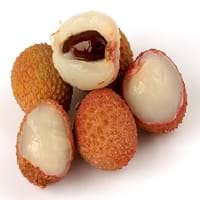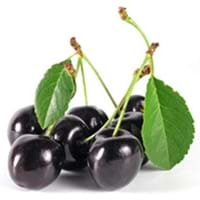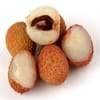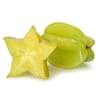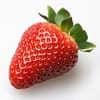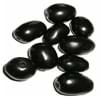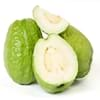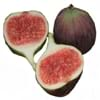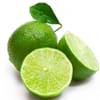Health Benefits
Cancer prevention, Cures gastro-intestinal troubles, Heart care, Muscle pain relief, Prevents blindness from diabetes
Anti-aging benefits, Anti-inflammatory properties, Arthritis treatment, Cancer prevention, Helps body to rest and sleep, Lower blood pressure, Prevents diabetes, Prevents strokes, Reduces risk of heart disease
General Benefits
Boosts immune system, Digestive aid, Fights against infections, Helps in weight loss, Maintains healthy cholesterol level, Strengthens bones
Fights against infections, Fights Tooth Decay, Helps in weight loss, Relieves pain, Treatment of migraine
Skin Benefits
Anti-aging benefits, Skin rejuvenation
Anti-aging benefits, Fairness, Hydrates skin, Prevents skin cancer, Skin repair, Treatment of acne
Hair Benefits
Promotes longer and healthier hair, Protects hair
Cure for hair loss, Increasing hair volume, Prevents hair loss, Strengthening of hair
Allergy Symptoms
Coughing, Diarrhea, Headaches, Hives, Itching, Labored Breathing, Nausea, Runny nose, Swelling of mouth, tongue or lips, Vomiting, Watery eyes
Abdominal cramps, Anaphylaxis, Diarrhea, Hoarseness, Itchy eyes, Nausea, Pollen allergies, Sore eyes, Vomiting, Watery eyes, Wheezing
Side Effects
May cause abdominal pain, Diarrhoea, Mouth irritation, Throat irritation, Weight gain
High doses of black cherry bark can be poisonous and even fatal.
Lactating Women
Yes
Not Available
Best Time to Eat
As a snack in the late afternoon, Don't consume at night and before bed, Eat the fresh ones, avoid mixing with any other foods, don't eat after meal., Morning time (before lunch), Strictly avoid empty stomach
Best if taken as a breakfast (or empty stomach), Don't eat after meal, Morning time (before lunch)
Vitamin B1 (Thiamin)
Not Available
Vitamin B5 (Pantothenic Acid)
Vitamin B6 (Pyridoxin)
Not Available
Vitamin B9 (Folic acid)
Not Available
Vitamin C (Ascorbic Acid)
Not Available
Vitamin E (Tocopherole)
Not Available
Vitamin K (Phyllochinone)
Not Available
Lutein+Zeaxanthin
Not Available
Phytosterol
Not Available
Calories in Fresh Fruit with Peel
Not Available
Calories in Fresh Fruit without Peel
Not Available
Calories in Frozen Form
Not Available
Calories in Dried Form
Not Available
Calories in Canned Form
Not Available
Calories in Juice
Not Available
Calories in Jam
Not Available
Calories in Pie
Not Available
Type
Tree fruit, Tropical
Berry
Season
Spring, Summer
Summer
Varieties
Emperor fruit, Mauritiu, Sweet Heart, Brewster, Haak Yip and Bengal
alabamensis, capuli , eximia and hirsuta
Color
Bright red, Pink red
Black
Inside Color
Greyish-white
Maroon
Taste
Crunchy, Juicy, Sweet
Sweet-Sour
Origin
China, Indonesia, Philippines, Vietnam
North America
Soil Type
Alluvial, Loam, Well-drained
Not Available
Climatic Conditions
Absence of strong wind, Cold, Dry, Without frosts
Cold
Facts about
- The seed of Lychee fruit is toxic & can adversely affect the digestive system.
- This fruit gives a smoky flavor when eaten dried.
- This fruit is a symbol of love and romance in China.
- Black cherry is deciduous tree that belongs to the family of roses.
- Some foods made from Black Cherry fruit include jelly and wine.
- Inner bark of black cherry is used in the manufacture of cough syrup.
Top Producer
China
Turkey
Other Countries
Australia, India, South Africa, Thailand, United States of America
Austria, Bulgaria, Chile, China, France, Greece, Iran, Italy, Macedonia, Poland, Romania, Russia, Serbia, Spain, Syria, Ukraine, United States of America, Uzbekistan
Top Importer
Hong Kong
France
Top Exporter
China
Turkey
Botanical Name
Litchi chinensis
Prunus Serotina
Synonym
Nephelium litchi
wild black cherry, rum cherry and mountain black cherry
Subkingdom
Tracheobionta
Tracheobionta
Division
Magnoliophyta
Magnoliophyta
Class
Magnoliopsida
Magnoliopsida
Family
Sapindaceae
Rosaceae
Species
L. chinensis
P. serotina
Generic Group
Soapberry
Cherry
Difference Between Lychee and Black cherry
We might think that Lychee and Black cherry are similar with respect to nutritional value and health benefits. But the nutrient content of both fruits is different. Lychee and Black cherry Facts such as their taste, shape, color, and size are also distinct. The difference between Lychee and Black cherry is explained here.
The amount of calories in 100 gm of fresh Lychee and Black cherry with peel is Not Available and 63.00 kcal and the amount of calories without peel is 66.00 kcal and Not Available respectively. Thus, Lychee and Black cherry belong to Low Calorie Fruits and Low Calorie Fruits category.These fruits might or might not differ with respect to their scientific classification. The order of Lychee and Black cherry is Sapindales and Rosales respectively. Lychee belongs to Sapindaceae family and Black cherry belongs to Rosaceae family. Lychee belongs to Litchi genus of L. chinensis species and Black cherry belongs to Prunus genus of P. serotina species. Beings plants, both fruits belong to Plantae Kingdom.
